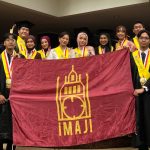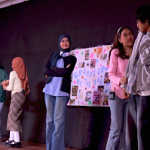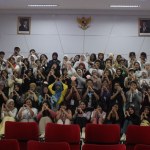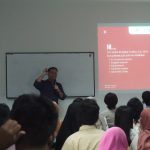Arsip:
SDG 4 – Quality Education
A youth-led, non-profit organisation, AIYA seeks to improve the connections between young Australians and Indonesians as well as the opportunities that exist between Australia and Indonesia through cultural and language exchanges, professional programs, and more.
Join us for an exciting internship as Radio Announcer, Podcaster, and Cultural Event Assistant at BBM Radio! The work hours are Monday to Friday, from 4:00 PM to 9:00 PM, for a total of 120 […].
Ayfa Hurin Ien, a student from English Studies Program, is currently participating in a Lithuanian Language and Culture Winter Course. This is a month-long program designed for international students to learn Lithuanian at various level […].
Join Magang Merdeka at STAR Indonesia to gain new experience as professional linguists/translators! Send your CV, latest academic transcript, and short essay (500-700 words) explaining why you need to participate in this internship program and […].
As a student of English Studies Program, it is important to familiarize yourself with the university’s academic policies and expectations. The Academic Guidelines provide essential information on topics such as curriculum, courses, academic activities, and […].
Discovery English is now offering exciting internship opportunities for both Academic and Social Media Interns! As an Academic Intern, you will gain valuable experience in academic field by getting involved in lesson planning, curriculum enhancement, […].
A Reflective Essay by Emily Trisnandi, Intern at PT STAR Software Indonesia In my last semester of college, I had the opportunity to join an internship program held by the English Department UGM and PT.
From November 20–22, 2024, Florinesya Zahwa Raihania, a student from the English Department, participated in the prestigious ASEAN Youth Conference (AYC). Since its inception in 2018, the AYC has served as a flagship program of […].
Congratulations to 2024 English Department Graduates! On Thursday (21/11), Universitas Gadjah Mada (UGM) held a graduation ceremony in Grha Sabha Pramana for 2,049 students that have finished their undergraduate degree.
The Story of Devi Ayu Lidyana, the Champion of Kickboxing Match in PON XXI Aceh-Sumatra Utara 2024, Representing Both the Alma Mater and Yogyakarta Yogyakarta, 16 October 2024.







